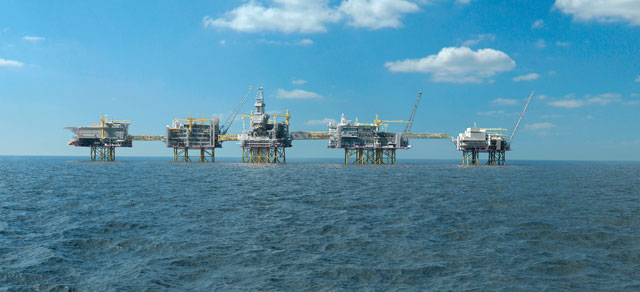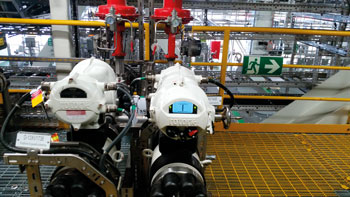
Efficient flow control holds out the promise of eliminating emissions released during oil and gas production, which will make a valuable contribution to achieving net zero by 2025, says Anthony Vangasse, Head of Product Management for valves and instrumentation specialist Rotork.
Flow control is the process of managing the flow of liquids and gases. It is found in the day-to-day operation of numerous industries, markets and applications (including oil, gas, water, power, chemical, industrial and process control applications). As a key function at the heart of multiple forms of energy production, efficient flow control plays an essential role in the energy revolution.
The question of sustainability within energy production is one that is increasingly important in a world which faces a climate crisis; how can manufacturers provide the essential services the world needs, while reducing negative impacts upon it? Effective flow control products and services play a key role in a world that must decarbonise. They are an essential component of the global energy transition, for both existing and future energy technologies.
Reliable, repeatable valve control maximises operational reliability and efficiency. The actuators that operate valves within energy production allow for compliance with environmental standards, ensure safety in often challenging environments, can improve yield and reduce emissions.
Electric actuators are especially valuable within oil and gas production because they offer flow control that does not release fugitive emissions. Their use is an important step in the race to Net Zero by 2050, reducing the harmful emissions that can be released by other forms of flow control such as bleed gas emissions produced by spring diaphragm pneumatic actuators that are powered by the produced gas.

This has traditionally been very common in remote locations such as wellheads in inaccessible environments. An oil site such as a platform has many process control valves constantly moving, as well as on/off valves. The use of electric actuators and the subsequent elimination of compressed air can be significant and can result in a much more productive and cost-effective operation, as well as making operations environmentally friendly and compliant with the increase of emission control mandates that are being implemented globally.
The natural gas industry has traditionally used pneumatic devices powered by pressurised natural gas as valve controllers and pressure regulators, despite their role as a source of methane emissions. This can be reduced or eliminated by their replacement with non-high bleed devices that are powered by electricity.
For example, Rotork provides PAX electric actuators that are fitted directly to regulators on natural gas pressure reducing stations in the United States, creating a system that is entirely emission free, with no wasted product.
Reducing and minimising emissions from day-to-day operations in the oil and gas industry today will have a huge impact of what the future landscape of energy provision looks like. An example of how electric actuators can contribute to reducing emissions within the oil and gas production process can be seen in a project Rotork was involved with in 2020. An all-electric solution for the flow control requirements at a newly built oil field on the Norwegian continental shelf was provided.
Over 700 of Rotork’s IQ3 multi and part-turn intelligent electric actuators were ordered to provide an extensive range of flow control services across the drilling, riser, process and living quarters. The all-electric platform now produces oil in a way that provides a reduced level of emissions; IQ actuators have no need for compressors, no leakage, low inactive energy use and no need for gas venting.
Conclusion
Efficient and effective flow control plays a crucial role in the provision of energy in a zero-carbon future. Innovation and improved flow control technology can reduce or eliminate the emissions released during the production of oil and gas.
www.rotork.com | Sarah.Kellett@rotork.com +44 (0) 1225 733492

